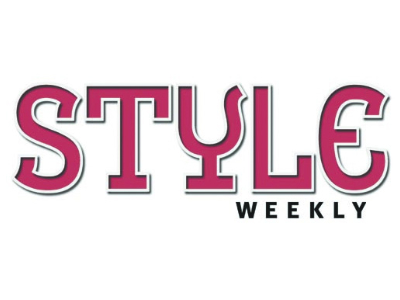
Mark Lilly puts the rubber on the road and tries to make change happen with his mobile micro farmers market on wheels, better known as the Farm Bus.
This green machine has been offering healthy vegetables, fruits, dairy and meats to Richmonders since 2009, but today Lilly is finding that he needs to take his show on the road to survive.
The Richmond native was an undergraduate at VCUarts for painting and printmaking. In the late 2000s, he attended the University of Richmond for its Disaster Sciences and Emergency Management program. This landed him in a class called Hazards and Threats to the Future, where he learned about a 20-year forecast of famine and severe hunger in the United States.
Lilly became angry learning about how toxic our food system is.
“Policymakers don’t care about creating a better system,” he says, adding that the country’s food system is unsustainable in terms of distribution.
In school, Lilly’s research focus centered on pandemics and researching how people would access food and which businesses would thrive during these emergency periods. He feels that humans need three things to survive — food, water and shelter — and a fourth, love, to thrive.
The Farm Bus was his way of combining these concepts at a micro level.
Lilly quit his job, took his last dollar and bought a school bus off of Craigslist. He created relationships with local farmers and turned the bus into a mobile farm for different communities.
Soon, his phone started ringing with calls from the BBC, Rachel Ray, People Magazine and others. He recalls that Style Weekly was one of the first outlets to reach out to him, he says. The timing was right, as it was when best-selling food writer Michael Pollan’s “Omnivore’s Dilemma” book was front and center discussing the importance of our collective food choices.
When the COVID-19 pandemic arrived in 2020, he found that his business thrived — proving his theory correct.
Since then there have been challenges, such as struggling to get more customers involved locally. Generally speaking, Lilly attributes this to living in a society that is reactive to events, rather than being proactive.
But his business has been surviving by staying mobile.
“I drive to D.C. every week,” he says. “That’s where a majority of my business is, because I can’t get enough support here in my own community.”
Lilly has grown with a network of growers and suppliers in this closed loop system, while hoping to help local farmers. “I’m hopeful that something changes, but I don’t see that change happening fast enough,” he says, regarding the need for more people to get involved in the farming system.
Anybody who wants to support his mission can do so by joining his Community Supported Agriculture, or CSA, where a household subscribes to receiving farm-fresh food for the growing season. People can also donate to Farm Bus, or just stop by and get involved.
“I just say, cook food at home,” Lilly encourages.
Farm Bus serves customers in Richmond as well as the Capitol Hill/Washington D.C. area. Visit thefarmbus.csaware.com or email [email protected] for more information.
Author Gabriela de Camargo Gonçalves was born and raised in São Paulo, Brazil. She is a senior at Virginia Commonwealth University graduating in December and a current intern at Style Weekly, while also leading VCU’s independent student newspaper The Commonwealth Times.

